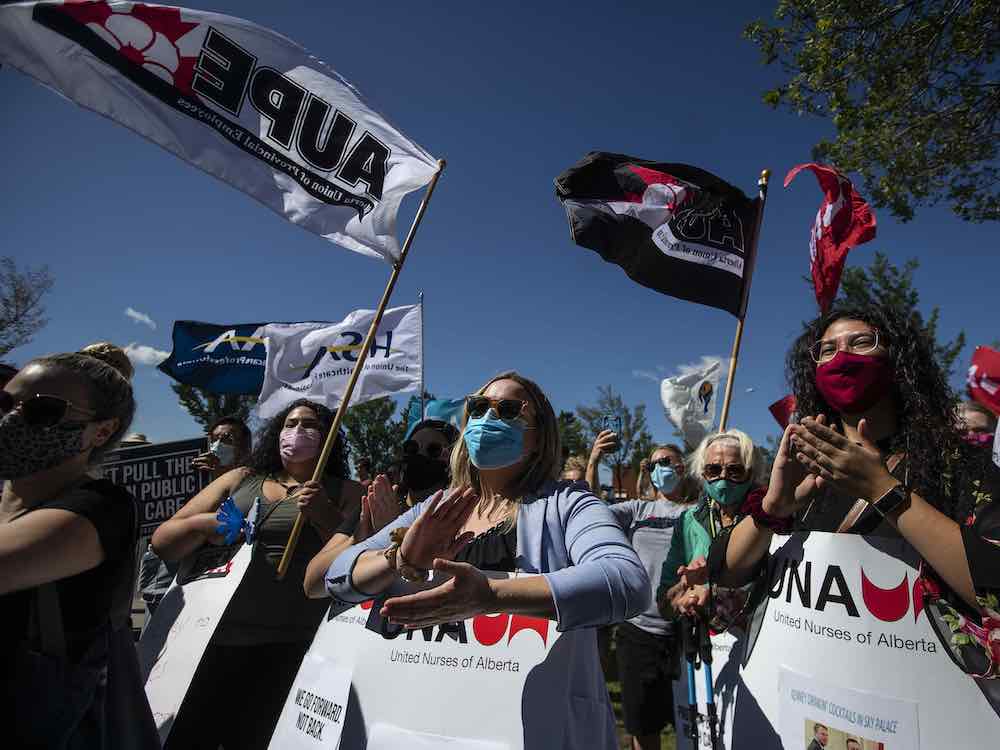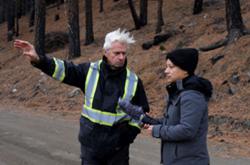In the coming months, over 200,000 public sector workers in Alberta will begin bargaining with their employers for new contracts. The most recent agreements expired in March and, after many years of high inflation and few wage increases, workers will be looking for raises.
The largest unions have already begun bargaining and others will join later this spring, with negotiations expected to come to a head in the fall.
These negotiations will involve workers in almost every public service Albertans rely on, such as health care and education. Also covered in negotiations are post-secondary education and the core provincial civil service, including public sector workers who are employed by the government and those employed by various agencies, boards and commissions.
The one thing every one of these negotiations will have in common is the provincial government calling the shots for the employer. As a result, it is expected that bargaining at all of the tables will be tense — and with real prospects for labour disruption.
A thumb on the scale
The Alberta government has begun involving itself with public sector bargaining in an unprecedented way compared with previous provincial governments and those in every other province and territory. It will likely do so again in 2024.
This interference undermines the bargaining process, damages the relationship between workers and their employers and results in unfair deals for workers and their families.
In 2019, the United Conservative Party passed the Public Sector Employers Act, allowing the finance minister to impose bargaining mandates on all public sector employers and dictate what kind of deal they must negotiate.
Those mandates must remain secret at all times — during bargaining and even after — meaning the employer can never reveal them to unions or publicly. Alberta is the first jurisdiction in Canada to impose such secret mandates.
In “A Thumb on the Scale,” a report we wrote for the Parkland Institute at the University of Alberta, we found the first time these secret mandates were used in 2020 it rendered the collective bargaining meaningless for public sector workers.
The report tracks the history of government intervention in public sector bargaining in Canada and Alberta and evaluates how recent forms of intervention, including the secret mandates and the creation of bargaining co-ordination offices, have impacted collective bargaining.
Through interviews with union-side negotiators and former government officials, the report unpacks what took place in the 2020 round of negotiations and provides insights into what may come this year.
Secret mandates undermine bargaining
The union negotiators we spoke to explained that employers’ hands were tied by the secret mandates. And, due to the confidential nature of the mandates, employers were unable to openly disclose these struggles. Only after bargaining broke down and unions triggered mandatory mediation — the first step on the road towards a work stoppage — was any major deal settled.
This degree of interference tipped the scales in favour of the government. The resulting dynamic damaged trust between workers and employers, which will have long-lasting implications beyond the current government.
Governments usually involve themselves with public sector bargaining when they are either the employer or the primary funder of the employers, as is the case with health-care employees.
However, Alberta’s use of secret mandates allows it to control what happens at every bargaining table across the province without having to face workers or negotiate fairly. Public sector workers never get to negotiate with the people calling the shots.
In the 2020 round of bargaining, the UCP used secret mandates to try to force deep wage rollbacks of between four and 11 per cent on public sector workers, some even retroactively.
The challenges of COVID-19 derailed that plan, but still workers were forced to accept small wage increases that fell far short of the soaring cost of living.
As we enter a new round of negotiations this spring and summer, public sector workers will, understandably, be looking for a fair wage to keep up with rising costs. However, we expect that they will be met with even more demands for concessions, despite significant provincial budget surpluses.
What to expect in this round of bargaining
If the government attempts to impose its political will through secret mandates, the upcoming round of bargaining will be acrimonious and may end in work stoppages. After years of underfunding, COVID-19 stress and minimal wage gains, Alberta’s nurses, teachers, health-care aides, social workers and civil servants are looking for fairness.
So far in the process, signs are not encouraging. At every table, the same employer opening offer has been presented — a raise of 7.5 per cent over four years — which falls far short of recent inflation and what the workers are asking for. Early signs are that the government is intent on continuing its behind-the-scenes interference with public sector bargaining.
The government has a choice of meeting with public sector workers face-to-face to find a fair deal or once again trying to force its anti-worker agenda on the people who keep the province moving.![]()
![]()
Read more: Rights + Justice, Politics, Labour + Industry, Alberta
















Tyee Commenting Guidelines
Comments that violate guidelines risk being deleted, and violations may result in a temporary or permanent user ban. Maintain the spirit of good conversation to stay in the discussion and be patient with moderators. Comments are reviewed regularly but not in real time.
Do:
Do not: